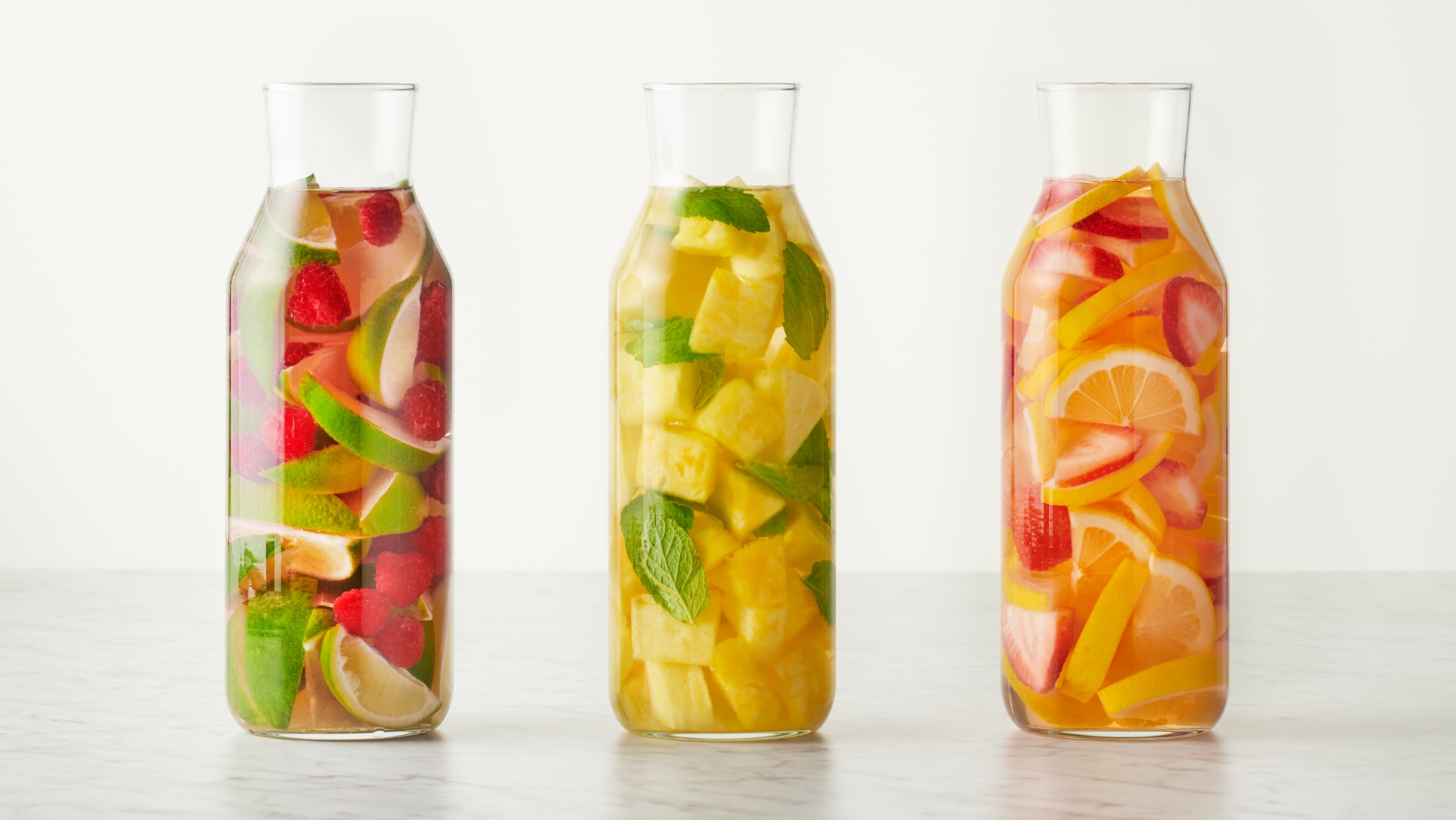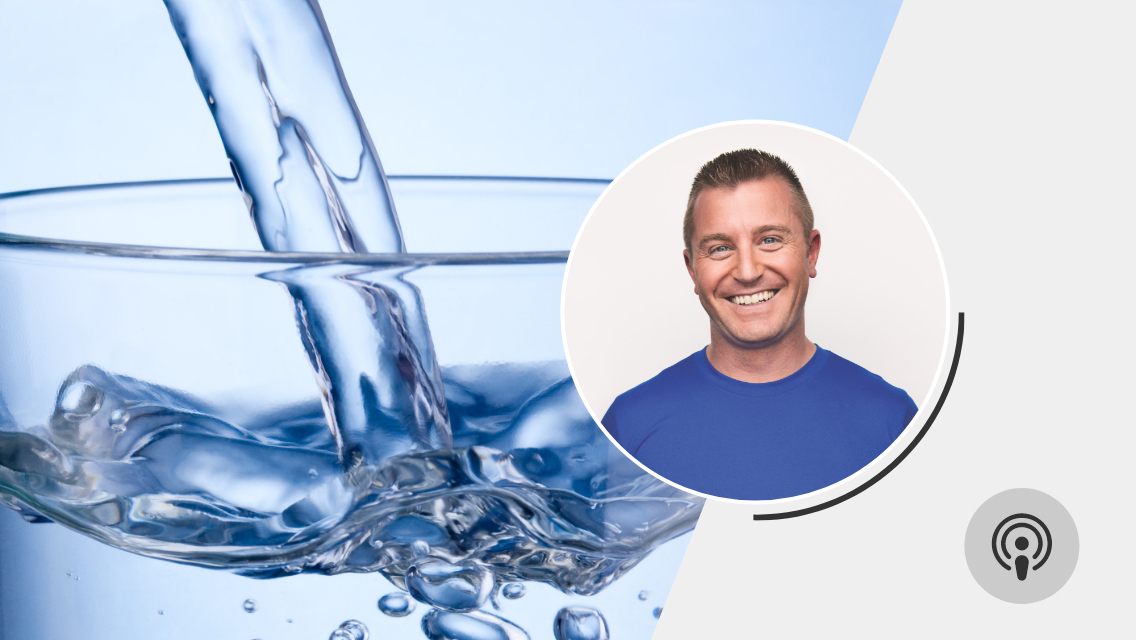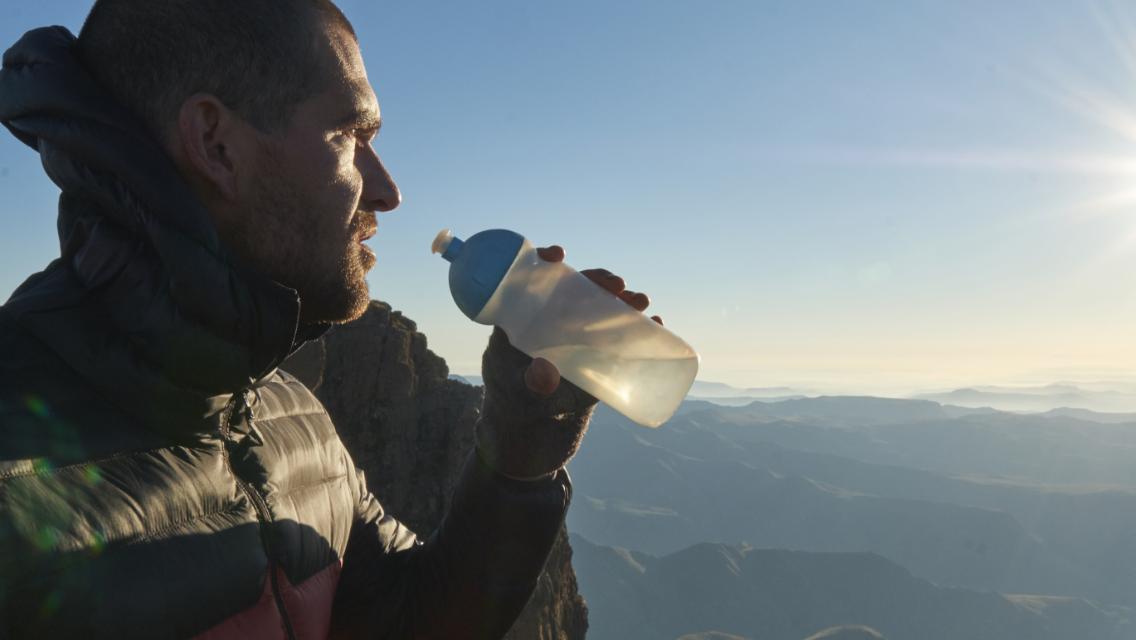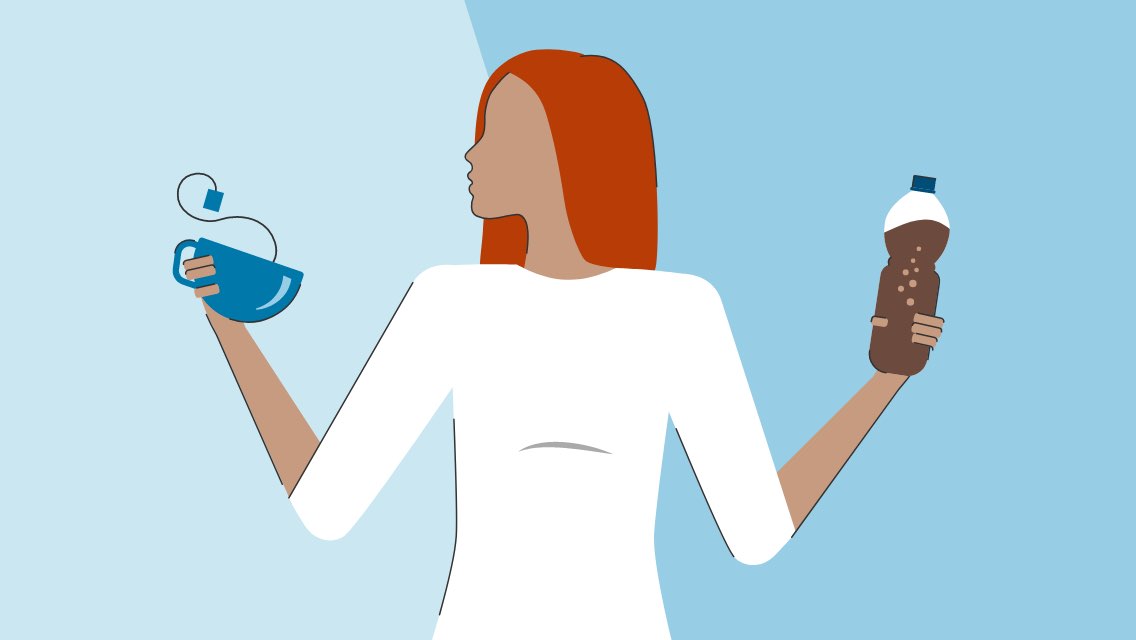From my experience with clients, I’ve found that most people know they need to drink water, but often don’t realize just how important hydration truly is to their health and well-being.
Simply put, optimal hydration is key to feeling like your best self. It’s crucial for your daily energy levels, with sub-optimal hydration being one of the top triggers for daytime fatigue. Hydration is also important for kidney heath (and supporting the prevention of kidney stones), detoxification, workout performance, and healthy hormone balance.
While drinking half of our ideal body weight in ounces of water is an important daily target for us to aim towards, sometimes having a bit more variety can help break the monotony of drinking water alone — and help support our hydration needs in ways that are a bit more enjoyable.
Here are a few tried and true favorites to help hydrate your system from the inside-out.
1. Water Infusions
Plain water can be a bit boring at times. However, add some fruits and herbs and you’ll get just enough flavor (without any added sugar) to give you a tasty and refreshing (and hydrating!) beverage to sip on throughout the day.
You can add water to a pitcher with your favorite combinations, use a specially-made pitcher with a cylinder in the center to hold the infusion, or purchase ready-to-drink bottled or canned flavored water without extra sweetener.
If you’re making it at home from fresh or frozen fruit and herbs, it will typically keep for up to three days. Simply add the fruit and herbs to water and let sit in the fridge for at least a few hours to bring out the flavor before drinking.
Here are a few great combos to try:
- Lime wedges with raspberries
- Halved strawberries and lemon slices
- Blackberries and cucumber slices
- Pineapple chunks with fresh mint
2. Water-Rich Foods
Your nutrition plan can also support your hydration levels — both by focusing on limiting foods that are dehydrating and purposely including foods that are rich in water.
To start, aim to limit excess intake of both caffeine and alcohol, which can increase water losses. High blood-sugar levels can also raise the risk of dehydration by increasing urination, so try to reduce your consumption of refined flour (from breads, crackers, muffins, etc.) and added sugars (from desserts, coffee creamers and flavors, most condiments, etc.).
Instead, make a concerted effort to include water-rich foods in your plan. Aim to regularly consume soup, broth, watermelon, berries, cucumbers, celery, and other produce — all of which have significant water content.
3. Electrolyte Supplements
When it comes to hydration, I’ve always educated my clients that it’s both about the amount of fluid you consume and the amount of fluid you are able to retain.
During periods of excess or ongoing stress, increased exertion (and sweating), or consumption of added sugar, our bodies can lose sodium and water with increased urination.
Using great-tasting electrolyte mixes (such as one of our favorites, Re-Lyte) can help support hydration in two ways. First, it can increase consumption by naturally flavoring water — without sugar — so it’s more enjoyable. For example, Re-Lyte has a few tempting options, such as piña colada, mixed berry, and watermelon lime.
Secondly, including the five major electrolytes (sodium, potassium, chloride, calcium, and magnesium) in your beverage of choice can support proper fluid balance, firing of nerve signals, and muscle contraction and relaxation. Proper electrolyte levels can help restore the balance of how much fluid you retain and excrete, especially during times of stress and exertion.
Note: If you’re concerned about sodium consumption in relation to blood pressure, give this a read: “6 Misconceptions About Blood Pressure to Rethink”.
You want to look for options that are free of added sugar (often listed as cane sugar, fruit juice concentrate, coconut sugar, or one of sugar’s other names on the ingredient list) and do not contain any artificial sweeteners such as sucralose, aspartame, and acesulfame-potassium (or Ace-K).
Optimal health relies on a few key principles, and hydration is arguably one of the most important — yet also one of the easiest to overlook if you’re not putting in purposeful effort. While it seems simple, supporting your hydration can make an enormous and near-immediate impact on your results.





